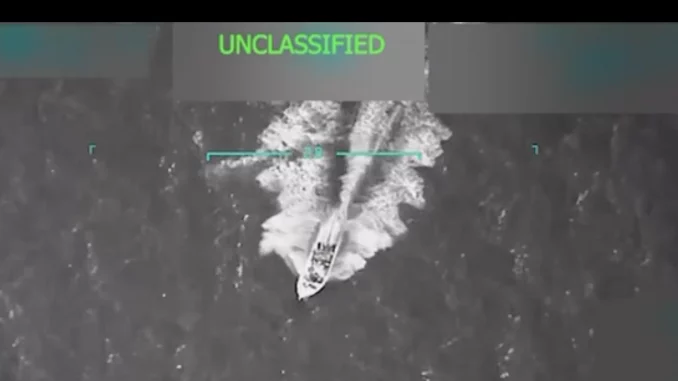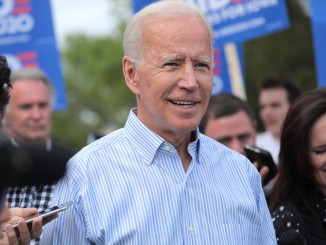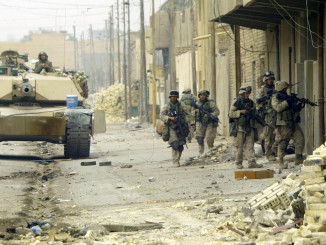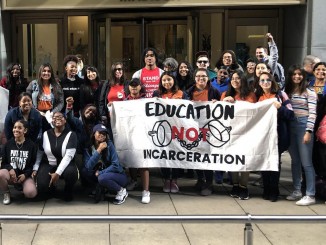
The Trump administration has been aggressively escalating its attacks against Venezuela as well as other nations in the region. Since early September, it has carried out missile strikes on boats in international waters in the Caribbean and the Pacific, off the Venezuelan and Colombian coasts, so far killing at least 61 people. Included in the dead were Venezuelan, Colombian, Trinidadian and Ecuadorian civilians.
What is the justification given? The Trump administration says that it is targeting members of Tren de Aragua, “narco-terrorists.” Trump claims that, “Every one of those boats is responsible for the death of 25,000 American people, and the destruction of families.” The truth is that these are nothing but extrajudicial executions on the high seas. Smuggling drugs is not a capital crime in the United States or anywhere in international law, yet Washington is executing people without charge or trial.
What evidence does the Trump administration provide to support this assertion that they are going after drug traffickers? Absolutely nothing!
In fact, U.S. intelligence agencies acknowledge that very little cocaine and no fentanyl, which happen to be the leading cause of overdose deaths in the U.S., move through Venezuela.
Even if it were true that they were targeting drug traffickers, what gives the U.S. the right to summarily execute them? What would happen if the Venezuelan government launched preemptive missile strikes against any U.S. citizens that they claimed were smuggling drugs?
In total indifference for the complete illegality of the strikes, when asked whether “killing the citizens of another nation who are civilians without any due process is called a war crime,” J.D. Vance responded, “I don’t give a shit what you call it.”
Building Up To War
Since the missile strikes, roughly 10,000 US troops have been mobilized to the Caribbean, a nuclear submarine and massive amounts of warships and naval assets have been moved to the region, forcing the reopening of a formerly shuttered U.S. naval base in Puerto Rico. The recent deployment of the aircraft carrier USS Gerald R. Ford to these waters marks a dangerous escalation, signaling how serious Washington’s preparations for war have become.
What started as $15 million under the first Trump administration and $25 million under the Biden administration is now a bounty on Venezuelan President Nicholas Maduro’s head for $50 million by the U.S. Drug Enforcement Agency.
Considering this open belligerence, Maduro has reportedly agreed to hand over the country’s oil and gas fields to the control of U.S. corporations and cut off economic ties to China, Russia, Iran and Cuba.
But this has not been enough for the United States. Trump has now given a green light to the C.I.A. to invade Venezuela and assassinate Maduro.
Why Is The United States Really Pushing For War Against Venezuela?
This isn’t a “drug war.” It’s the old playbook rewritten for a new century. It is the update of the Monroe Doctrine, a U.S. government policy aimed at controlling Latin America’s resources, shipping lanes, and political future. Today the government is applying it particularly against China’s influence rising in the region.
Since the early nineteenth century, the United States has claimed the right to police South America under the Monroe Doctrine, first against Europe’s colonial interests, then against any Latin American people or government that defied its control. From Mexico and Cuba to Chile, Nicaragua, and Brazil, the same doctrine has justified coups, invasions, and blockades. Now, this is echoed in the U.S. backing and support of right-wing President Milei in Argentina and the growing pressure on center-left President Lula’s government in Brazil.
Today, the massive buildup of U.S. military might in the Caribbean has a mission and it is not to fight drug trafficking. The real goals are regime change (to get rid of Maduro’s government in Venezuela) and to make clear to all the people of Latin America and the rest of the world that U.S. imperialism will use military force to advance its economic and political interests.
Venezuela’s Maduro regime is a continuation of the “Bolivarian Revolution” of Hugo Chavez. Chavez was a former military lieutenant colonel voted into office in 1999 with massive support from the population and significant support from the military. Since Chavez’s death in 2013, Maduro has ruled the country. From the perspective of the U.S. government and ruling class, both the Chavez and Maduro regimes have been thorns in their side for decades.
Venezuela has the largest known oil reserves in the world. Hugo Chavez had the audacity to use the county’s nationalized oil industry wealth and reinvest some of that money back into the poorer sections of society with healthcare and education programs. Since then, there has been nothing but open hostility towards Venezuela from the United States, regardless of Republican or Democratic administrations, including supporting multiple coup attempts. In response to the hostility from the United States, Venezuela developed stronger economic and political relationships with China, Russia, and Iran, provoking even more ire from Washington.
Chavez’s early policies were extremely popular among the Venezuelan working class. When the United States backed a military coup in 2002, briefly arresting him, a mass uprising of ordinary Venezuelans restored him to power.
But the limits of a nationalist regime competing within a global capitalist system soon became clear. Shaped by centuries of imperial domination, Venezuela’s economy remained almost entirely dependent on oil. When oil prices were high, there was wealth to share. But when oil prices fell, especially as U.S. oil production rose, the crisis deepened. Since 2014, successive rounds of brutal U.S. sanctions have cut Venezuela off from much of the global economy. The Venezuelan government estimates over $30 billion in assets have been seized abroad. A U.N. special investigator for human rights estimated that sanctions led to excess deaths of 100,000 Venezuelans.
Having to play ball in the international economy, Chavez maintained ties with the International Monetary Fund (IMF) and banks, forcing Venezuela to repay massive debts from previous regimes. Maduro opened the Orinoco Mining Arc region, giving vast territories to foreign corporations from China, Russia, and elsewhere, draining wealth and devastating local ecologies and indigenous communities.
Hyperinflation and shortages have made daily life intolerable. More than seven million people have fled the country in the past decade. The right wing points to Venezuela’s collapse as proof of left-wing policy failure, but the real issue was that the working class never took power from the capitalist elite. Many of the wealthy have backed the “Bolivarian Revolution” so long as they have had access to massive government contracts. The “Bolivarian Revolution” never became a revolution that challenged the fundamental relationships of power in Venezuelan society.
No country can build socialism alone, including one sitting on the world’s largest oil reserves under constant imperial siege. Only an organized working class can stand up to imperialism, from the West or the East.
Maduro, like Chavez before him, represents a wing of the ruling elite that fears independent worker organization. Citing real threats of intervention, Maduro has consolidated more power among people loyal to him while turning to brutal repression towards critics on the left, whether trade-unionists, students, or journalists. Amid austerity and collapse, corruption flourishes, creating a “Bolivarian bourgeoisie.”
Meanwhile, U.S. intelligence exploits the crisis to funnel resources to the opposition. Their favored candidate, María Corina Machado (recently awarded the Nobel Peace Prize) was involved in the 2002 coup, supports every sanction against the Venezuelan people, and openly calls for a U.S. invasion to topple Maduro. She is Washington’s handpicked replacement, ready to impose imperialist-friendly policies.
Imperialism Escalates Its Threats Throughout The Region
In the immediate situation, the attacks on Venezuela are largely about seizing control of the oil. But that is not the only aim.
While the target happens to be Venezuela today, it also sends a message to other countries throughout Latin America like Colombia, Panama, Cuba and Mexico that the U.S. will not hesitate to violate international law and other countries’ sovereignty and impose brutality to get what it wants.
The point is to reaffirm that Latin America is still the “backyard” of U.S. business interests, in light of growing competition from the United States’ rivals, particularly China.
This arrogant gunboat diplomacy of the United States imposing its will on the people of Venezuela today is nothing new. This is the history of U.S. intervention in Latin America, from Guatemala to Chile, Cuba to Brazil, El Salvador to Haiti. From the Monroe Doctrine to the Trump Doctrine, the U.S. has long seen Latin America as its own “backyard” to dominate.
For working-class and all oppressed people in the United States, we have no interest in the attacks committed against the Venezuelan people. The forces that are carrying out military actions in the Caribbean are the same ones invading cities like Los Angeles, Chicago, Washington D.C., Oakland, San Francisco and Portland. In the case of Venezuela, the Trump administration makes very little effort to hide its intentions. It wants to overthrow the Maduro regime and install political leaders that are totally submissive to U.S. imperialism. Without giving any support to the Maduro government, we have every reason to stand with the workers and all poor people of Venezuela as well as the entire region to fight for their right to decide their own future.




